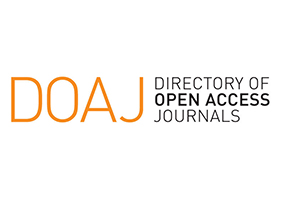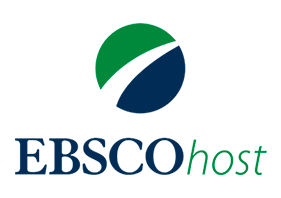Female Entrepreneurship in Peru 2010-2023
DOI:
https://doi.org/10.33304/revinv.v19n2-2024010Keywords:
entrepreneurship, Peru, gender gaps, leadershipAbstract
This article analyses the conditions of female entrepreneurship in Peru during the period 2010 to 2023 through an exploratory study with a qualitative and quantitative approach, supported by a documentary review of statistical data reported by the Global Entrepreneurship Monitor (GEM), the National Institute of Statistics and Informatics (INEI) and more than 50 relevant scientific sources. Based on the background information, which indicates that, despite the increase in the participation of Peruvian women in the creation of micro-businesses, the rate of female entrepreneurship is among the lowest in Latin America, the objective of this research focused on identifying the barriers that limit this type of entrepreneurial process. The main findings of the study indicate that 89.6% of Peruvian women entrepreneurs create micro-businesses, they are six times less likely to have access to sources of capital, only 49.5% of Peruvian women are integrated into the financial system and less than 7.4% of women entrepreneurs have a university education. In conclusion, it highlights the need to formulate new inclusive public policies that foster an equitable entrepreneurial ecosystem that eliminates gender stereotypes and socio-cultural barriers, through training programmes with continuous support for both women and men at the time of setting up a business.
Downloads
References
Aranibar, E., Huachani, D. y Zúñiga, M. (2022). Emprendimiento femenino en el Perú: puntos fuertes y débiles para su sostenibilidad en el tiempo. Revista de Difusión Cultural y Científica de la Universidad La Salle, 23(23), 199-224. http://www.scielo.org.bo/scielo.php?script=sci_arttext&pid=S2071-081X2022000100010
Avolio, B. (2014). Género y políticas de recursos humanos. Calidad del empleo de las mujeres.
Banco Mundial. (2024). Desempleo, mujeres - Latin America & Caribbean, Perú. https://datos.bancomundial.org/indicador/SL.UEM.TOTL.FE.ZS?locations=ZJ-PE
Blanco, M., Sánchez, P. y Ramos, F. (2016). Conciliación de la vida laboral y familiar en mujeres en formación ocupacional. REMIE - Multidisciplinary Journal of Educational Research, 6(2), 127-151.
Cardona Rubert, M. B. (2023). Los estereotipos de género en el empleo: una cuestión de actualidad. Cuadernos Electrónicos de Filosofía del Derecho, (49), 689-696. https://doi.org/10.7203/CEFD.49.26459
Chávez, M. (2019). Incidencia del emprendimiento social femenino en el desarrollo del Cusco, una mirada desde la educación. Revista de la Facultad de Derecho y Ciencias Políticas (Cusco), 4(11), 233-250. https://doi.org/10.51343/rfdcp.v4i11.154
Chávez Vera, K. J., Alderete Velita, J. J., Rosas-Prado, C. E. y Urbina Cárdenas, M. F. (2023). Emprendimiento peruano: factores e intervenciones que facilitan su desarrollo. Revista de Ciencias Sociales, 29(2), 483-495. https://dialnet.unirioja.es/servlet/articulo?codigo=8920565
Comisión Económica para América Latina y el Caribe (Cepal). (2022). Observatorio de la igualdad de género. https://oig.cepal.org/sites/default/files/ficha_america_latina.pdf
CrediMujer. (2021). Movimiento Manuela Ramos. https://www.manuela.org.pe/autonomia-economica-credimujer
Díaz Pérez, A. y Silva Niño, A. (2017). Retos de las políticas públicas para el fomento del emprendimiento femenino en Colombia. Reflexión Política, 19(38), 42-57. https://www.redalyc.org/pdf/110/11054032004.pdf
Fajardo Portugal, A. y Tejada Barrera, C. (2019). Estudio de factibilidad para la creación de una empresa dedicada a la capacitación de mujeres emprendedoras de bajos recursos económicos en el distrito de Cerro Colorado, 2019 [Tesis de grado, Universidad Católica San Pablo, Arequipa, Perú]. https://gestion-repo.ucsp.edu.pe/items/43009ac9-9934-4ff9-a1ce-2f05c3592ab4/full
Fernández, A. (2023). El empoderamiento económico en cuestión. Aproximación etnográfica a un proyecto de empoderamiento de mujeres indígenas en Kenia. Pacha. Revista de Estudios Contemporáneos del Sur Global, 4(10), e230160. https://doi.org/10.46652/pacha.v4i10.160
Global Entrepreneurship Monitor (GEM). (2017). Global Entrepreneurship Monitor Perú 2015-2016. https://www.researchgate.net/publication/322084139_Global_Entrepreneurship_Monitor_Peru_2015-2016
Global Entrepreneurship Monitor (GEM). (2022). Global Entrepreneurship Monitor 2021/22: Women’s Entrepreneurship Report. From crisis to opportunity. https://www.gemconsortium.org/report/gem-202122-womens-entrepreneurship-report-from-crisis-to-opportunity
Global Entrepreneurship Monitor (GEM). (2023). Global Entrepreneurship Monitor 2022/23: Women’s Entrepreneurship Report: GEM 2022/2023 Women’s Entrepreneurship. Challenging bias and stereotypes. https://www.gemconsortium.org/report/gem-20222023-womens-entrepreneurship-challenging-bias-and-stereotypes-2
Ibarra-Baidón, C. (2018). Emprendimiento social: una definición propuesta desde el desarrollo sostenible. XXIII Congreso Internacional Contaduría, Administración e Informática. Universidad Autónoma, Ciudad de México.
Instituto Nacional de Estadística e Informática (INEI). (2017a). Demografía empresarial en el Perú: I, II, III y IV trimestre de 2017. https://m.inei.gob.pe/biblioteca-virtual/boletines/demografia-empresarial-8237/1/#lista
Instituto Nacional de Estadística e Informática (INEI). (2017b). Perú. Brechas de género 2017. https://www.inei.gob.pe/media/MenuRecursivo/publicaciones_digitales/Est/Lib1444/libro.pdf
Instituto Nacional de Estadística e Informática (INEI). (2018). Perú: evolución de los indicadores de empleo e ingreso por departamento, 2007-2018. https://www.inei.gob.pe/media/MenuRecursivo/publicaciones_digitales/Est/Lib1870/libro.pdf
Instituto Nacional de Estadística e Informática (INEI). (2019). Demografía empresarial en el Perú: I, II, III y IV trimestre de 2019. https://m.inei.gob.pe/biblioteca-virtual/boletines/demografia-empresarial-8237/1/#lista
Instituto Nacional de Estadística e Informática (INEI). (2021). Demografía empresarial en el Perú: I, II, III y IV trimestre de 2021. https://m.inei.gob.pe/biblioteca-virtual/boletines/demografia-empresarial-8237/1/#lista
Instituto Nacional de Estadística e Informática (INEI). (2022a). Encuesta Nacional de Hogares (ENAHO). Condiciones de vida y pobreza 2022. https://www.inei.gob.pe/media/encuestas/documentos/enaho/2022/01_Enaho_01_2022.pdf
Instituto Nacional de Estadística e Informática (INEI). (2022b). Perú: brechas de género, 2022: avances hacia la igualdad de mujeres y hombres. https://www.gob.pe/institucion/inei/informes-publicaciones/3823328-peru-brechas-de-genero-2022-avances-hacia-la-igualdad-de-mujeres-y-hombres
Instituto Nacional de Estadística e Informática (INEI). (2023). Demografía empresarial en el Perú: I trimestre de 2023. https://m.inei.gob.pe/biblioteca-virtual/boletines/demografia-empresarial-8237/1/#lista
Instituto Nacional de Estadística e Informática (INEI). (2024). Población peruana alcanzó las 33 millones 726 mil personas en el año 2023. https://m.inei.gob.pe/prensa/noticias/poblacion-peruana-alcanzo-los-33-millones-726-mil-personas-en-el-ano-2023-14470/#:~:text=Asimismo%2C%20la%20poblaci%C3%B3n%20peruana%20est%C3%A1,(50%2C4%20%25)%20mujeres
León, J. y Huari, D. (2014). Determinantes del proceso de emprendimiento empresarial femenino en el Perú. Pensamiento Crítico, 13, 57-70. https://doi.org/10.15381/pc.v13i0.9000
Manrique Ruiz, G. (2014). Revisión conceptual y definición del término emprendimiento para la tecnología en gestión industrial. Revista Estrategia Organizacional, 3, 181-192. https://doi.org/10.22490/25392786.1515
Mendoza, J., Pinto, Y. y Gálvez, M. (2021). Peruana del bicentenario: promotora del emprendimiento en tiempos de crisis. Comuni@cción, 12(4), 332-342. https://doi.org/10.33595/2226-1478.12.4.586
Ministerio de la Mujer y Poblaciones Vulnerables (MIMP). (2018). Presentan programa “Mujer Produce” que beneficiará a lideresas de MYPES. https://www.gob.pe/institucion/mimp/noticias/22793-presentan-programa-mujer-produce-que-beneficiara-a-lideresas-de-mypes
Ministerio de la Mujer y Poblaciones Vulnerables (MIMP). (2022). MIMP lanza portal web PRONAME para promover la reactivación económica de mujeres emprendedoras y empresarias. https://www.gob.pe/institucion/mimp/noticias/590042-mimp-lanza-portal-web-proname-para-promover-la-reactivacion-economica-de-mujeres-emprendedoras-y-empresariasfbclid=IwY2xjawFha_BleHRuA2FlbQIxMQABHfWHVcrWFYeBDJCTCylFfKqe1uQgO6QDVESk5kwP4hvVQdNSlPamhuPNVA_aem_QwzJZWFyJ9nrVcFP5trBHg
Ministerio de la Mujer y Poblaciones Vulnerables (MIMP). (2023). Las mujeres representan el 42.9% del total de emprendedores. https://www.gob.pe/institucion/produce/noticias/721836-las-mujeres-representan-el-42-9-del-total-de-emprendedores
Ministerio de la Producción. (2023). Produce cofinanciará proyectos audiovisuales o capacitaciones que fomenten el emprendimiento femenino hasta con S/154,000. https://www.gob.pe/institucion/produce/noticias/836858-produce-cofinanciara-proyectos-audiovisuales-o-capacitaciones-que-fomenten-el-emprendimiento-femenino-hasta-con-s-154-000
Morales, O. (2023). La mujer emprendedora en el Perú: escenario pospandemia. RPP. https://rpp.pe/columnistas/oswaldomorales/la-mujer-emprendedora-en-el-peru-escenario-pospandemia-noticia-1487505
Observatorio Estratégico de la Alianza del Pacífico (OEAP). (2018). Primer informe. Programas de apoyo al emprendimiento femenino en la Alianza del Pacífico. https://asep.pe/wp-content/uploads/2021/12/Emprendimiento-Femenino-en-Latinoamerica-Informe-Mujeres-del-Pacifico.pdf
Ochoa, V. (2004). Implicaciones socioculturales de la mujer víctima de violación sexual. https://www.semanticscholar.org/paper/Implicaciones-socioculturales-de-la-mujer-v%C3%ADctima-Osorio-Corina/5e2ae35fe66fe93119e8869f9d9c2913f4419ccd
Orihuela-Ríos, N. C. (2022). Emprendimiento femenino: características, motivos de éxito, limitantes, involucrados y consecuencias. INNOVA Research Journal, 7(1), 109-122. https://doi.org/10.33890/innova.v7.n1.2022.1946
Pando, T. T., Cangalaya-Sevillano, L. M., Herrera, Z. E. y Cabrejos, R. E. (2022). Liderazgo y empoderamiento en las mujeres empresarias en el Perú. Revista de Ciencias Sociales, 28(Especial 5), 234-245. https://doi.org/10.31876/rcs.v28i.38159
Paredes, M. (2022). Cultivar el emprendimiento familiar: una cuestión de valor. Instituto de Familias Empresarias para México y Latinoamérica, TEC, Monterrey. https://ifem.tec.mx/es/noticia/cultivar-el-emprendimiento-familiar-una-cuestion-de-valor-blog
People. (s. f.). Women - Peppermint Laboratorio de Innovación. Peppermint.pe
Perales, D. (2021). Barreras que impiden el emprendimiento femenino: caso mujeres emprendedoras AWE Chiclayo-Perú 2020 [Tesis de licenciatura, Universidad Católica Santo Toribio de Mogroviejo, Perú]. https://tesis.usat.edu.pe/handle/20.500.12423/3945
Peralta, G. y Olivarría, F. (2022). El trabajo de cuidados y la desigualdad de género: un acercamiento a las experiencias de las mujeres. Revista Estudios Psicológicos, 2(4), 47-60. https://doi.org/10.35622/j.rep.2022.04.004
Portocarrero, W. y Velásquez, M. (2019). Características del emprendimiento de las mujeres: caso de mujeres en La Libertad, Perú. Revista Ciencia y Tecnología, 15(1), 89-99. https://revistas.unitru.edu.pe/index.php/PGM/article/view/2311
Radio Programas del Perú (RPP). (2021). Emprendedoras peruanas: ¿cuáles son los retos que enfrentan y cómo promover su crecimiento? https://rpp.pe/campanas/valor-compartido/emprendedoras-peruanas-cuales-son-los-retos-que-enfrentan-y-como-promover-su-crecimiento-noticia-1361453
Red Nacional de Mujeres Emprendedoras y Empresarias del Perú (RedMep). (2022). ¿Qué es la Red Nacional de Mujeres Empresarias y Emprendedoras del Perú? https://renameeperu.com.pe/
Rodríguez, R., Rebollo, M. y Jiménez, R. (2016). Gestión y liderazgo empresarial con perspectiva de género: voces y experiencias. Cuestiones de género: de la igualdad y la diferencia, (11), 329-350. https://idus.us.es/bitstream/handle/11441/43613/GESTI%c3%93N%20Y%20LIDERAZGO%20EMPRESARIAL%20CON%20PERSPECTIVA%20DE%20G%c3%89NERO.pdf?sequence=1&isAllowed=y
Romaní, G., Soria-Barreto, K., Honores-Marín, G., Ruiz Escorcia, R. y Rueda, J. (2022). Not like my parents! The intention to become a successor of Latin American students with entrepreneur parents. Sustainability, 14(3), 1193. https://doi.org/10.3390/su14031193
Rueda, J. y Ruiz, R. (2019). Analysis of female entrepreneurship in Latin America. 17th LACCEI International Multi-Conference for Engineering, Education, and Technology: “Industry, Innovation, and Infrastructure for Sustainable Cities and Communities”, 24-26 July 2019, Jamaica. https://bit.ly/3fnIJ14
Sanagustín-Fons, M., Ramírez-Lozano, J. y Peñaflor-Guerra, R. (2020). Feminine and religious leadership. A long-term company model. Cauriensia, 15, 771-803. https://doi.org/10.17398/2340-4256.15.771
Sandoval, C. (2023). Limitaciones y factores de éxito del emprendimiento femenino: una perspectiva costarricense. Yulök Revista de Innovación Académica, 7(1), 12-30. https://doi.org/10.47633/yulk.v7i1.575
Setini, M., Yasa, N., Supartha, I., Giantari, I. y Rajiani, I. (2020). The passway of women entrepreneurship: starting from social capital with open innovation, through to knowledge sharing and innovative performance. Journal of Open Innovation: Technology, Market, and Complexity, 6(2), 25. https://doi.org/10.3390/joitmc6020025
United Nations Development Programme (UNDP). (2023). Gender Social Norms Index (GSNI). Breaking down gender biases: shifting social norms towards gender equality. https://hdr.undp.org/content/2023-gender-social-norms-index-gsni#/indicies/GSNI
Zurich Seguros. (2022). Zurich Seguros analiza el gen emprendedor en España y sus principales retos de futuro. https://www.zurich.es/notas-prensa/analizamos-gen-emprendedor-espana-y-retos-futuro
Downloads
Published
How to Cite
Issue
Section
License

This work is licensed under a Creative Commons Attribution-NonCommercial-ShareAlike 4.0 International License.
This journal provides immediate free access to its content under the principle of making research available to the public free of charge, which fosters a greater exchange of global knowledge. This work is under a Licencia Creative Commons Atribución-NoComercial-CompartirIgual 4.0 Internacional (Creative Commons Attribution-NonCommercial-ShareAlike 4.0 International License) However, any request by the author to obtain permission for their reproduction will be evaluated.











